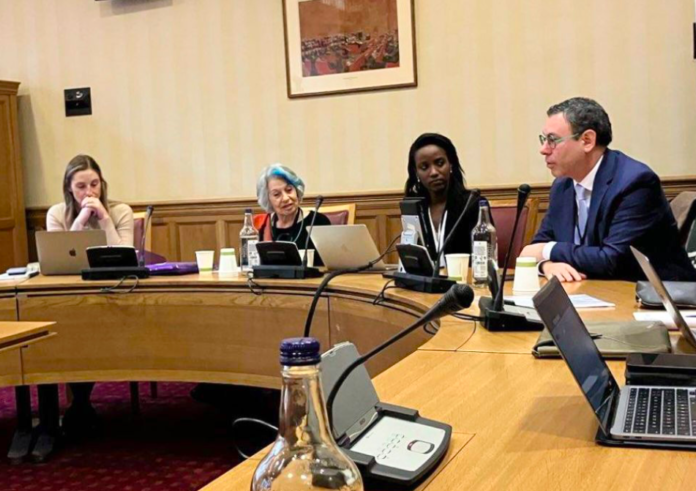On February 20, 2024, Carine Kanimba, the daughter of Paul Rusesabagina—known for his heroic actions depicted in the film “Hotel Rwanda”—took a significant step in her ongoing campaign for justice and human rights. Addressing the UK Parliament, Kanimba highlighted the pressing human rights issues in Rwanda, focusing on the country’s use of transnational repression, the atrocities committed by the M23 group in the Democratic Republic of Congo (DRC), and the persecution of Rwandans who dare to speak against injustices within their country. Her statement, shared on her social media platform X, underscored the urgency of the matter and her commitment to advocating for those silenced by fear and repression.
This poignant moment in the UK Parliament came against the backdrop of a legal and political drama surrounding her father, Paul Rusesabagina. His legal representative, Kate Gibson, has emphasized how the 2020 abduction and subsequent mistreatment of Rusesabagina have transformed Carine Kanimba and her sister, Anaïse Kanimba, into unwavering defenders of human rights. Their journey from daughters of a national hero to frontline human rights activists highlights the personal cost of their family’s struggle and the broader implications for global human rights advocacy.
The context of Kanimba’s address is deeply intertwined with the UK’s controversial asylum policy towards Rwanda. Following a Supreme Court judgment that deemed the initial plans to remove asylum seekers to Rwanda as incompatible with the UK’s human rights obligations, the government revised its agreement with Rwanda. This new treaty, purported by the government to include enhanced human rights protections, aims to designate Rwanda as a safe country under UK law, thereby limiting the grounds for asylum seekers to challenge their removal.
On February 21, 2024, the Joint Committee on Human Rights scheduled an evidence session to delve deeper into the human rights situation in Rwanda. This session is set to feature testimonies from Paul Rusesabagina and Lewis Mudge, the Central Africa Director at Human Rights Watch. Their insights will be crucial in assessing the realities faced by critics of the Rwandan government and the efficacy of the UK-Rwanda treaty in safeguarding the human rights of deported asylum seekers.
The UK Parliament’s inquiry into the human rights of asylum seekers, especially in the context of the UK-Rwanda relationship, stands at a critical juncture. The evidence presented by Kanimba, Rusesabagina, and Mudge will play a pivotal role in shaping the discourse on international human rights obligations, the ethical dimensions of asylum policies, and the broader implications for global human rights advocacy. As the UK government seeks to navigate its international responsibilities and domestic legal frameworks, the voices of those directly affected by its policies, like Kanimba and Rusesabagina, remind us of the human stakes involved in these legal and political debates.






























































